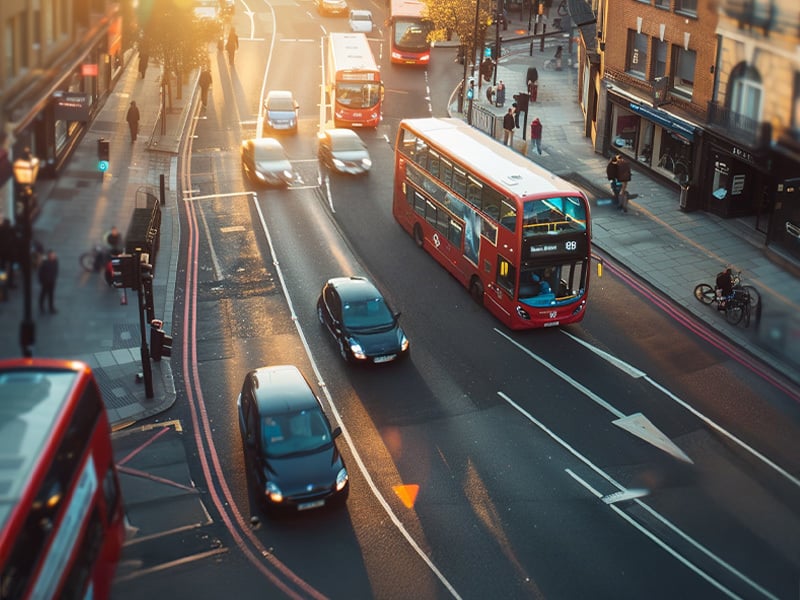
Have you ever accidentally driven in a bus lane and received a fine? You’re not alone. According to an RAC study, more than a third (36%) of UK drivers admit to mistakenly entering a bus lane, with 42% of those caught receiving fines.
Many motorists blame confusing signage, unclear time restrictions, and poor visibility. This guide explores why so many drivers fall foul of bus lane rules and, more importantly, how to avoid costly penalties.

1. Confusing Signage
Bus lane signs can be difficult to read and understand while driving. Many operate only at specific times, but the details are often displayed in small text, making it hard to process on the move. According to the RAC study:
- 85% of drivers say bus lane signs contain too much information to read while driving safely.
- 33% find the signs difficult to spot.
- 23% say signs are visible but not easy to understand.
For official guidance on bus lane rules, see the GOV.UK Highway Code.
2. Lack of Advance Warnings
Many drivers argue that bus lanes appear suddenly, without enough warning. Some roads have poor markings, making it easy to drift into a bus lane without realising it.
3. Fear of Fines Leads to Underused Lanes
Some motorists avoid bus lanes altogether, even when they are outside of operational hours, for fear of fines. The RAC study found that:
- 28% of drivers never use bus lanes, even when allowed, to avoid the risk of a penalty.
- 32% say they err on the side of caution if they can’t read the signs in time.
1. Learn the Rules in Your Area
Different councils enforce bus lane rules differently. Check your local authority’s website for information on bus lane times and locations. Some councils provide online maps to help drivers plan routes, such as Transport for London (TfL) Bus Lane Guidance and Manchester City Council’s Bus Lane Policy.
2. Understand Common Bus Lane Signs
- Blue rectangular signs indicate a bus lane, often with a time restriction.
- No time displayed? The lane is in operation 24/7.
- Dashed white lines? You can enter the lane if needed.
- Solid white lines? Stay out unless permitted.
3. Use Technology to Your Advantage
Apps like Google Maps and Waze can highlight bus lanes in some areas, helping you avoid accidental violations. Dashcams can also provide evidence if you need to challenge a fine.
4. If You Get Fined, Can You Appeal?
- If signage was unclear or missing, you may have grounds for an appeal.
- If you were avoiding an obstruction or emergency vehicle, you can challenge the fine.
- Check your council’s appeal process, some accept evidence like photos or dashcam footage. More details can be found at the Traffic Penalty Tribunal.
The RAC argues that councils should send warning letters to first-time offenders instead of issuing instant fines. Since most drivers don’t intentionally misuse bus lanes, a warning system could help reduce accidental violations without punishing well-meaning motorists.
Bus lanes are essential for public transport efficiency, but unclear signage and lack of warnings catch too many drivers out. Understanding bus lane rules, using technology, and staying aware of local restrictions can help you avoid fines. If councils introduced first-time warnings, it could improve compliance while reducing unnecessary penalties. Until then, staying vigilant is key.
Why not check out our What Happens If I Get a Speeding Ticket in My Lease Car? blog for more information? We also produce a range of weekly blogs on various topics, which can be found in the blog section of our website.
Nationwide Vehicle Contracts are one of the UK's leading car leasing brokers and offer a range of leasing deals to suit every need. To find out more, check out our comprehensive car leasing guides or call one of our experts on 0345 811 9595.
Originally posted: 19th February 2025

